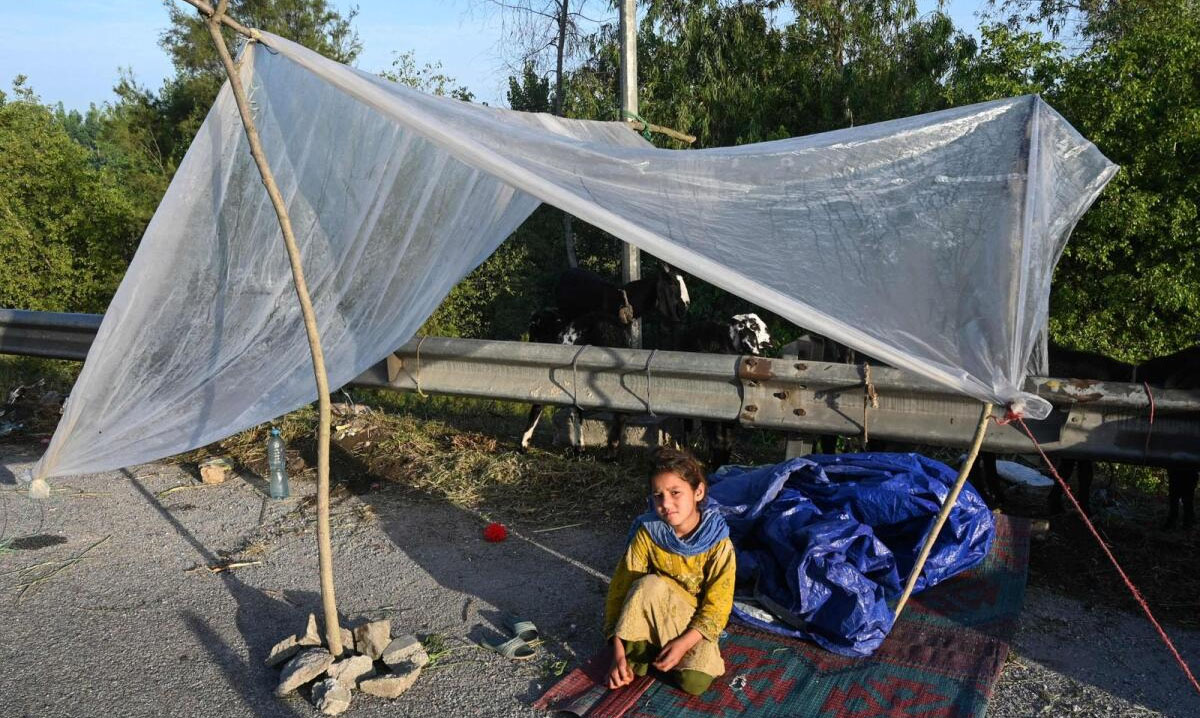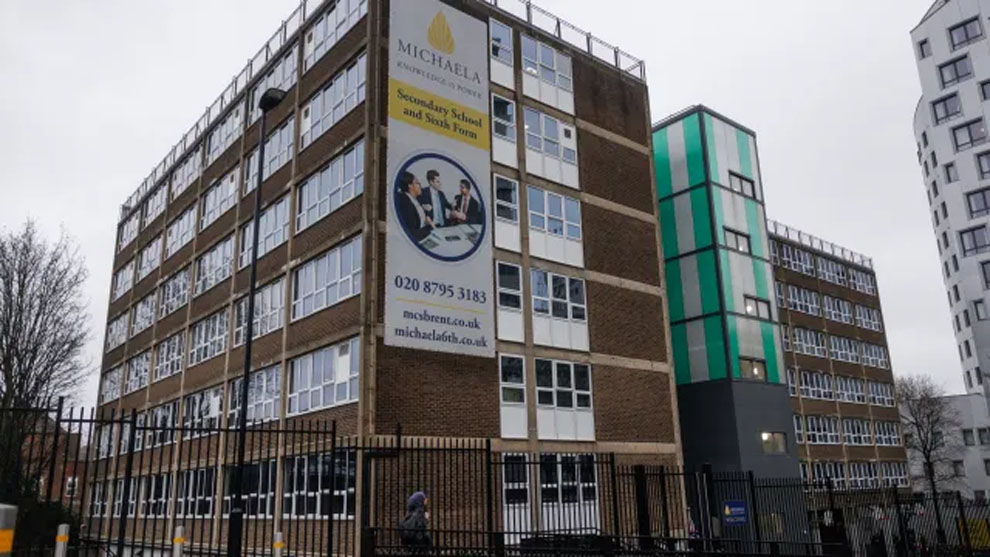International
Volodymyr Zelensky silences Irish parliament all the way from Ukraine

President Volodymyr Zelensky hushed the Irish parliament on Wednesday all the way from Ukraine, on a day when the languages of the two countries intermingled inside and outside the chamber.
The histories of the two countries are intertwined, the Dail heard, as Mr Zelensky spoke to a state marking 100 years since its foundation.
Those sentiments came not from Mr Zelensky himself, but from the politicians who pledged solidarity to the people of Kyiv, Mariupol, Bucha and a host of other war-torn towns.
The Ukrainian leader, when he spoke at 10am on Wednesday, had a different script to the leaders who have previously addressed a joint sitting of the Oireachtas.
He did not, like Tony Blair in 1998, regale politicians with memories of childhood holidays in Co Donegal.
Neither did he share snapshots from career-making moments in Dublin, as European Commission president Jean-Claude Juncker did in 2018.
The only Irish poetry referenced came from Ceann Comhairle Sean O Fearghail, who cited WB Yeats.
Instead, Mr Zelensky asked for help during the first virtual address in the history of the Oireachtas.
What Irish politicians heard was a demand for Irish and European support for the country in the face of Russian aggression.
Gratitude too, but calls to go further.
Mr Zelensky said Ireland has supported Ukraine from the start of the war.
READ ALSO:
- Putin adviser vows legal battles against attempts to seize Russian assets
- Man dies crashing car into Russian embassy in Romanian capital
- Ekiti 2022: Oni escapes assassination as thugs invade SDP secretariat
He said: “You did not doubt starting helping us, you began doing this right away and, although you are a neutral country, you have not remained neutral to the disaster and to the mishaps that Russia has brought to Ukraine.”
The voice of the Ukrainian leader, which has been heard in parliaments all the way from Brussels to Washington, was replaced by that of a translator.
But unmistakable was the impassive face of Mr Zelensky, which loomed above legislators from two screens behind Mr O Fearghail.
Dressed in military green, the Ukrainian president looked on as Irish politicians wore bright hues of blue and yellow.
Lapels, dresses and pocket-squares were all turned into expressions of silent support for Ukraine.
At the entrance to the Dail chamber, Oireachtas staff had also placed two small baskets of yellow and blue flowers.
Looking on too were around 50 ambassadors to Ireland from countries around the globe.
For them hunger is a weapon against us ordinary people as an instrument of domination
Mr Zelensky told those gathered that Russia is using hunger as a weapon in its war against his country.
“This night, our territory was again hit by Russian missiles,” he said.
“They are destroying things that are sustaining livelihoods to people.
“They also have blocked all of our sea ports, together with the vessels that had already agricultural cargos for exports.
“Why are they doing this? Because for them hunger is a weapon against us ordinary people as an instrument of domination.”
The Ukrainian leader stayed just long enough to hear a message of support from Irish premier Micheal Martin, who had sat upright, leaning forward, as he listened intently.
Mr Zelensky must have heard too, from thousands of miles away in Ukraine, the thunderous applause from senators and TDs inside the Dail chamber.
Not all members applauded – four People Before Profit TDs refused to clap, even as other politicians stood for a minute of applause.
The reason, a spokesperson said, was a disagreement with calls from Mr Zelensky for Nato involvement in the war, as well citing demands for more sanctions and a “decision to ban opposition parties” in Ukraine.
“Russia will have to live with the shame of what they have done in Ukraine for generations. Those responsible will be held to account,” Mr Martin told the Dail.
“We are with Ukraine and I am certain that, in the end, Ukraine will prevail.
“We are a militarily neutral country. However, we are not politically neutral in the face of war crimes. Quite the opposite.”
Outside the gates of Leinster House in the Irish capital, a small group of Ukrainian supporters gathered to listen to proceedings.
Irish and Ukrainian schoolchildren from St Joseph’s in the Dublin suburb of Fairview sang the national anthems of the two countries.
Nick Kozlov, from the Ukrainian Crisis Centre, led the crowd in chants.
“I believe, if we have young people like this, Ukraine will never be beaten,” he said.
As the two languages blended together outside, inside Leinster House the histories of the two countries were explicitly linked.
One hundred years after the creation of the Irish Free State, Ireland’s own struggle for independence was invoked, as was 19th century Irish political leader Daniel O’Connell and African-American abolitionist Frederick Douglass.
“In the long history of our own country, we have never invaded another but we do know what it’s like to have been invaded,” Tanaiste Leo Varadkar told the Dail.
“And to have the very existence of our national identity questioned too. For these reasons, we feel for the idealism of the Ukrainian people – their defiance and their determination to face down a new evil empire.”
Unity and silence reigned for most speeches, punctured only by renewed opposition calls for the expulsion of the Russian ambassador – a move resisted so far by the Irish Government.
Sinn Fein leader Mary Lou McDonald, dressed in white, said it is “long past time” to eject Yury Filatov.
That demand was conspicuously clapped by some TDs on the Government benches.
There was levity too.
Senator David Norris, partially kept from the corridors of the Seanad by ill health, made an appearance.
His particularly loud cheers at various stages in proceedings prompted applause and laughter, as well as compliments from Climate Minister Eamon Ryan.
But above all else, there was poignancy.
“Slava Ukraini,” Mr Martin told the embattled Ukrainian leader as he ended his speech.
Only a few metres above him, invisible to the Taoiseach, Ukrainian ambassador to Ireland Larysa Gerasko looked on.
Ms Gerasko, surrounded by colleagues, echoed quietly: “Slava Ukraini.”
INDEPENDENT
International
Heavy downpours, lightning kill 65 in Pakistan

Heavy downpours, lightning kill 65 in Pakistan
At least 65 people have perished in storm-related accidents in Pakistan, including lightning, according to officials, with rain falling at roughly twice the historical average rate in April.
Heavy rains between Friday and Monday produced flash floods and collapsed houses, while lightning killed at least 28 people.
The highest death toll occurred in northwestern Khyber Pakhtunkhwa, where 32 people, including 15 children, died and more than 1,300 homes were damaged.
“All the casualties resulted from the collapse of walls and roofs,” Anwar Khan, spokesman for the province’s disaster management authority, told AFP on Wednesday.
Villagers whose homes were inundated with water were forced to seek refuge on higher ground, including on the shoulders of motorways, creating makeshift tents with plastic sheeting and bamboo sticks.
“In April, we have observed highly unusual rainfall patterns,” Zaheer Ahmad Babar, spokesperson for the Pakistan Meteorological Department, told AFP.
“From April 1st to April 17th, we experienced precipitation levels exceeding the historical average by 99 percent,” he added, citing data from the past 30 years as a comparison.
READ ALSO:
- EFCC has no powers to prosecute people over naira abuse – Odinkalu
- Stop Wike from using PDP for relevance, Secondus tells party leaders
- Court affirms Ganduje’s suspension as APC member
Most of the country experienced a pause in rain on Tuesday and Wednesday, but more downpours are predicted in the coming days.
“Climate change is a major factor behind these unusual weather patterns and above normal rainfalls, but it’s not just Pakistan which is affected, the whole region is experiencing changes in temperature patterns,” Babar added.
Pakistan is increasingly vulnerable to unpredictable weather patterns, as well as often destructive monsoon rains that usually arrive in July.
In the summer of 2022, a third of Pakistan was submerged by unprecedented monsoon rains that displaced millions of people and cost the country $30 billion in damage and economic losses, according to a World Bank estimate.
In the latest rains, 21 people including farmers harvesting wheat were killed by lightning in Punjab, Pakistan’s most populous province, provincial authorities said.
At least eight people were killed in Balochistan province, including seven struck by lightning, where 25 districts were battered by rain and some areas were flooded.
People living in open, rural areas are at greater risk of being struck by lightning during thunderstorms.
Schools in Balochistan province were ordered shut on Monday and Tuesday, with some reopening on Wednesday, because of the downpours.
At least four people were killed in road accidents linked to flooded roads in southern Sindh province.
Heavy downpours, lightning kill 65 in Pakistan
(AFP)
International
Israeli forces attack Gaza refugee camps, kill 18

Israeli forces attack Gaza refugee camps, kill 18
Eleven people, including children, were killed in an Israeli air strike on the Maghazi refugee camp in central Gaza as Israel continued to assault the Palestinian territories.
An Israeli jet attack on a residence in Rafah’s Yabna refugee camp was alleged to have killed seven more people, including four children.
ALjazeera had earlier reported that Gaza’s Civil Defence said “a number” of people had been killed and injured in the attack as they worked to pull the people injured, and the bodies of those killed, from under the rubble.
READ ALSO:
- Breaking: Saraki loyalist, Senator Rafiu Ibrahim, dies at 57
- Former female Boko Haram members cry for husbands
- PDP crisis: How G60 reps aborted pro-Wike camp’s plan to endorse Damagun
Meanwhile, Al-Jazeera Arabic shared video footage showing Israeli forces using heavy construction equipment to destroy the home of a Palestinian family in the town of Bani Naim east of Hebron city.
Earlier, Israeli forces used explosives and poured fresh concrete to destroy the family home of a killed Palestinian in the town of Beit Hanina, north of Jerusalem, the Wafa news agency reported.
Wafa also reported raids on homes in Tubas city in the north of the occupied West Bank.
Raids were also under way in Marda village, located north of Salfit city, and the town of al-Khader, south of Bethlehem.
A young Palestinian man was beaten by Israeli forces, then arrested during a raid south of Jenin, in the village of al-Fandaqumiya, according to Wafa.
Israeli forces attack Gaza refugee camps, kill 18
International
Muslim student loses High Court challenge against Michaela School’s prayer ban

Muslim student loses High Court challenge against Michaela School’s prayer ban
Michaela Community School in Wembley, led by headteacher Katharine Birbalsingh, insisted its approach promoted ‘inclusion and social cohesion between pupils’
A Muslim student at a London school once dubbed Britain’s strictest has lost a High Court challenge against its ban on prayer rituals.
The pupil, who cannot be named, took legal action against Michaela Community School in Wembley claiming its policy was discriminatory and “uniquely” affects her faith due to its ritualised nature.
In an 83-page judgment dismissing the student’s case, Mr Justice Linden said: “It seems to me that this is a case…where the claimant at the very least impliedly accepted, when she enrolled at the school, that she would be subject to restrictions on her ability to manifest her religion.
“She knew that the school is secular and her own evidence is that her mother wished her to go there because it was known to be strict.
“She herself says that, long before the prayer ritual policy was introduced, she and her friends believed that prayer was not permitted at school and she therefore made up for missed prayers when she got home.”
The judge upheld the student’s challenge to a decision to temporarily exclude her from the school.
READ ALSO:
- Naira records five-month highest gain, sells below N1000/$ at parallel market
- BREAKING: PDP secretary shot dead in his residence [PHOTO]
- NIMC issues 105 million NINs, targets 200 million in two years
Katharine Birbalsingh, the founder and headteacher of Michaela Community School, has hailed the ruling as a victory for all schools.
“The court’s decision is therefore a victory for all schools.
“Schools should not be forced by one child and her mother to change its approach simply because they have decided they don’t like something at the school.”
Education Secretary Gillian Keegan also welcomed the judgment on the free school’s prayer rituals ban.
She said: “I have always been clear that headteachers are best placed to make decisions in their school.
“Michaela is an outstanding school and I hope this judgment gives all school leaders the confidence to make the right decisions for their pupils.”
The case was heard at the High Court in January. Ms Birbalsingh, insisted its approach promoted “inclusion and social cohesion between pupils”.
She had planned to appeal the ruling if the school lost, telling the Sunday Times after the January hearing: “I will not divide children according to race and religion; it will not happen under my watch.”
The court was told the pupil, referred to only as TTT, was making a “modest” request to be allowed to pray for around five minutes at lunch time, on dates when faith rules required it, but not during lessons.
She argued the school’s stance on prayer – one of the five pillars of Islam – unlawfully breached her right to religious freedom and was “the kind of discrimination which makes religious minorities feel alienated from society”.
The policy was first introduced in March last year, the court heard.
Additional reporting by PA News Agency
Muslim student loses High Court challenge against Michaela School’s prayer ban
inews.co.uk
-

 metro7 days ago
metro7 days agoTroops arrest ISWAP commander involved in Army General, 3 soldiers’ killing in Borno
-

 News7 days ago
News7 days agoBREAKING: Ex-Abia gov, Ogbonnaya Onu, is dead
-

 Sports6 days ago
Sports6 days agoKane’s three children involved in car crash, hospitalised
-

 News5 days ago
News5 days agoFG gives update on where fleeing Binance executive is hiding
-

 Entertainment5 days ago
Entertainment5 days agoTolani Baj expresses love for Bobrisky
-

 metro5 days ago
metro5 days agoTroops neutralise 188 terrorists, rescue 133 hostages in assault operations
-

 metro5 days ago
metro5 days agoViral video: Edo CP orders trial of officer threatening people with gun
-

 News4 days ago
News4 days agoNLC, TUC jointly propose N615,000 new minimum wage






















